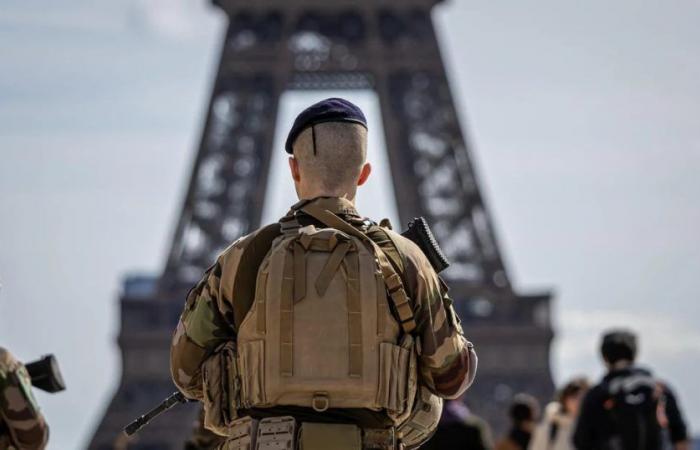Since France returned to the integrated military command structure of the NATO in 2009, reversing the decision of Charles de Gaulle After abandoning it in 1966, it has been a largely solid partner for USA and the Atlantic Alliance. Today the French contribute troops and fighter aircraft to operations and air surveillance along the eastern flank with Russia. They also patrol the sea Black with manned aircraft. As president, Emmanuel Macron has become one of the most outspoken advocates of European Union to incorporate Ukraine to NATO. He promises a coalition of military instructors to train newly mobilized recruits inside Ukraine and send French Mirage 2000-5 fighter jets.
However, within a few weeks, the conduct of French foreign policy may enter an uncertain and even turbulent period that could call these commitments into question. This is due to Mr Macron’s unexpected decision to call early parliamentary elections, which will be held on June 30 and July 7. A survey of Ifop on June 24 confirmed the strong advantage of National Rally (RN) of Marine Le Penwith 36%, followed by the left alliance New Popular Front (NFP), with 29.5%. Macron’s pro-European centrist group is stuck in third place, at 20%.
The French president could end up being a diminished figure in diplomatic affairs, overshadowed by a Eurosceptic or NATO-sceptic government, made up of parties with historical ties to Russia. On June 23, a group of 170 French diplomats (anonymous) warned in Le Monde on the particular dangers of a far-right victory: “Our adversaries will read the far-right victory as a weakening of France and an invitation to interference in our national politics, up to and including aggression against Europe, even militarily.”
On the far right, the election campaign has moderated some of its previously radical positions. Le Pen It has long abandoned its most Eurosceptic proposals, such as removing France from the euro or defending Frexit. Now he advocates for a “Different” Europewhich would be an “alliance of nations” in which countries would have more control over their affairs (and France would get a refund). The RN leader has denounced Russia’s invasion of Ukraine and her party has repaid a €9m loan to finance its campaign that it obtained from a Russian bank with links to the Kremlin.
In the last days, Jordan Bardella, his 28-year-old protégé and candidate for the post of prime minister, has also backtracked on previous diplomatic promises. As long as Russia is at war with Ukraine, he says, his party will no longer defend France’s departure from NATO’s integrated military command. Speaking in Paris on June 24, Bardella announced that he would respect the military budget for 2024-2030. This will please the French armed forces.
However, the The party’s underlying instincts could still mark a clear break. One reason is the party’s numerous ties to Russia. In a 2022 television documentary, Jean-Luc Schaffhauser, a former party MEP, who says he negotiated the party’s bank loan, said: “The interest of the Russians was to find Western allies.” Sometimes party figures sound as if they are reading from a Moscow script. A group of them participated in “monitoring” the Russian elections. At a parliamentary hearing in 2023, Le Pen defended the referendum held in Crimea after what Russia annexed Ukrainian territory in 2014, and argued that “Russian paranoia” about NATO on its borders should “be taken into account.”
Indeed, the RN makes no apologies for its hostility toward Ukraine’s membership in NATO or the EU, two bodies Macron supports. “We support Ukraine“That is very clear,” he says. Laurent Jacobelli, leader of the RN. But, he says, the party doesn’t want to be dragged into an Article Five (mutual defense) compromise: “We don’t want Third World war”. Bardella has also ruled out sending troops to Ukrainesomething that Macron has refused to exclude, or continue providing it with long-range missiles that can reach Russian soil.
The left alliance is much stronger in its support for Ukraine, despite the historical ties to Russia of some of its member parties; in fact, this was a condition for the socialists to unite. His electoral pact explicitly supports arms deliveries to Ukrainethe seizure of the assets of Russian oligarchs and the responsibility of Vladimir Putin before international courts. However, it completely sidesteps the question of France’s link to NATO, a source of internal division. In 2022, when he ran for president, Jean-Luc Melenchon, the former Trotskyist whose party dominates the alliance, called for France to leave NATO, which he described as “a useless organization.” The electoral program of the left alliance dedicates a page to Gaza, but does not mention NATO, the United States or even China.
In fact, the most vocal cause of the PFN is its support for the Palestinians, very popular among young people and, in particular, in the banlieues multicultural (the suburbs of big cities). The alliance promises that France would “immediately” recognize the Palestinian state and would sanction the Binyamin Netanyahu’s Israel. The reluctance of Mélenchon’s party to describe the attacks of Hamas on October 7 has caused a lot of friction between the alliance’s constituent parties. Raphaël Glucksmanna socialist member who was clear about his use of the “terrorist” label, has been branded a “Zionist candidate” by a member of Mélenchon’s party.
To some extent, according to the Constitution of the French Fifth Republic, such divergent positions might not matter. It is the president who is the commander in chief of the armed forces, chairs the national defense councils and can deploy French forces abroad. The government is responsible for internal affairs. Furthermore, it is very possible that neither the right nor the left will achieve a parliamentary majority in the second round. In which case legislative gridlock and political instability can impede much of the government’s foreign policymaking.
However, as pointed out François Heisbourg, from the Strategic Research Foundation, the division of labor is more confusing than many observers assume. A defense minister and a finance minister who wanted to block funding for, say, further arms deliveries to Ukraine, could make things difficult for Macron. If the RN were to enter the government, it could become almost impossible for the president to publicly push for Ukraine membership in NATO or the EU. “The president’s constitutional powers over foreign policy are more limited than people assume,” Heisbourg says. If French voters win a majority government dominated by either extreme, the country could find itself embroiled in a complicated fight between the two executives. At best, this will cause confusion for both the Allies and the French. At worst, it will seriously weaken France’s diplomatic position abroad and weaken NATO itself.
© 2024, The Economist Newspaper Limited. All rights reserved






